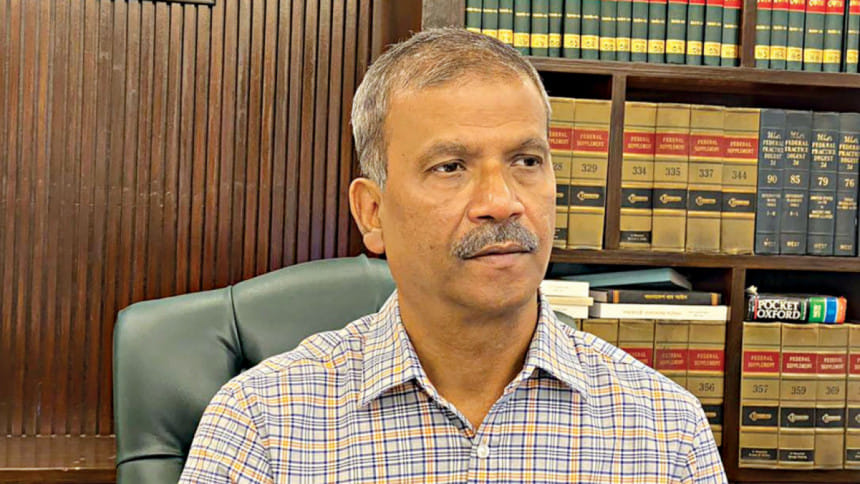Need a year for judiciary reforms

The interim government can complete the necessary reforms in the judiciary within a year, law adviser Asif Nazrul said yesterday.
He revealed plans to enact a law regarding the appointment of High Court judges this month, establish a judiciary secretariat within three months, and set up a permanent prosecution service within six months. "If we are given at least a year, we will complete these tasks," he said.
Reforms must be protected by strong consensus to prevent future repeal by any government, he added.
He was speaking at a dialogue titled "Democratic Reconstitution: On Judiciary", organised by the Centre for Governance Studies at the CIRDAP auditorium.
The High Court has the power to adjudicate any matter it desires, but this immense power has been used during Sheikh Hasina's fascist regime to consolidate power, Asif Nazrul added.
Reforms must be protected by strong consensus to prevent future repeal by any government.
Referring to the case of Jagannath University student Khadijatul Kubra under the Digital Security Act, he pointed to a concerning example of judicial delay. "Despite the High Court granting bail, the Appellate Division has indefinitely delayed her bail application, leaving her imprisoned without cause," he said.
Asif also linked the judiciary's role in human rights violations to the lack of free and fair elections. "If free elections were held, the judiciary would not have become so ruthless and oppressive. When elections do not exist, arbitrary oppression becomes the norm," he added. He emphasised the need to prioritise electoral reform to combat such issues.
Mujahidul Islam Selim, former president of the Communist Party of Bangladesh, highlighted the need for economic reforms and the strengthening of law enforcement agencies.
"The judiciary must be free from the influence of party politics and financial power," he said.
BNP Vice-Chairman Advocate Nitai Roy Chowdhury called for reforms in the lower courts, where most harassment occurs.
"Politics has gone to smugglers, goons, and bureaucrats. It must be taken back to politicians," he said.
Barrister Sara Hossain, Honorary Executive Director of BLAST, called for judicial harassment to be recognised as a subject of research. She emphasised the need for the judicial system to guarantee the right to bail, ensuring that every person has access to it if applicable. Hossain also pointed to the lack of women's representation in the Supreme Court and the absence of provisions for disabled individuals.
"We should be ashamed that disabled people are being overlooked in the courts," she added.
Prof Borhan Uddin Khan from Dhaka University's Law Department suggested that efforts should focus on reducing the influence of political parties within the judiciary.
"True independence lies in the mindset of judges, not in the laws," he said, calling for procedural changes to expedite trials and reduce case charges.
Advocate Muhammad Tajul Islam, Chief Prosecutor of the International Crimes Tribunal (ICT), prioritised the digitisation of the courts to streamline the judicial process. He also pointed to the politicisation of the judiciary as a major cause of corruption within the courts.
Zillur Rahman, Executive Director of CGS, said reform discussions have been ongoing since the 1990s. "Now, the word 'reform' has become a despised term. Institutions have failed to function properly, and if the judiciary had functioned correctly, we would have seen a fair election," he said.
Munira Khan of CGS chaired the event, which was attended by speakers from various sectors.

 For all latest news, follow The Daily Star's Google News channel.
For all latest news, follow The Daily Star's Google News channel. 



Comments